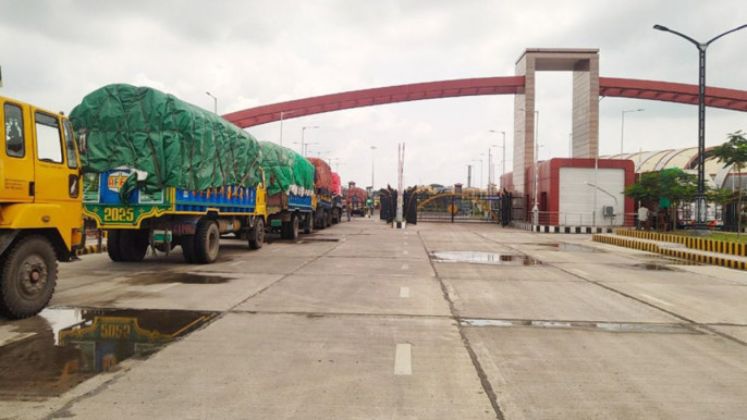
India has further tightened restrictions on imports from Bangladesh via land ports, adding new categories of products to its ban list. The latest notification, issued by the Directorate General of Foreign Trade under India’s Ministry of Commerce and Industry, specifies that bleached woven fabric of man-made fibres, twine, cordage, ropes, and sacks and bags made of jute will no longer be permitted through any land border crossings with Bangladesh. Instead, these items can only be imported through the Nhava Sheva Seaport in Mumbai.
This move follows a series of restrictions imposed over the past six months on various Bangladeshi products, including garments and textiles, amid escalating tensions between the two nations. The Indian government cited concerns over trade security and border management, but Bangladeshi entrepreneurs have criticised the restrictions as non-tariff barriers that could hamper bilateral trade relations.
Bangladeshi exporters have expressed concern that these measures will significantly impact their exports, particularly in the jute sector. Rashedul Karim Munna, Managing Director of Creation Private Limited, noted that the restrictions, combined with earlier anti-dumping duties on jute products, have already led to a decline in exports. He warned that shifting imports to Mumbai’s Nhava Sheva Seaport could increase costs more than sixfold, making Bangladeshi products less competitive in the Indian market.
Similarly, Abdul Barik Khan, Secretary General of the Bangladesh Jute Mills Association, indicated that the sector will need to explore new markets to offset losses. Apparel exporters also expressed apprehension that the new restrictions could affect Bangladesh’s potential exports of man-made fibres to India.
Industry analysts suggest that these restrictions may deepen trade tensions between the two countries and could impact the economic interests of Bangladeshi exporters, especially in the jute and textile sectors. As the situation develops, stakeholders are calling for dialogue to address the concerns and avoid further disruptions in bilateral trade.






